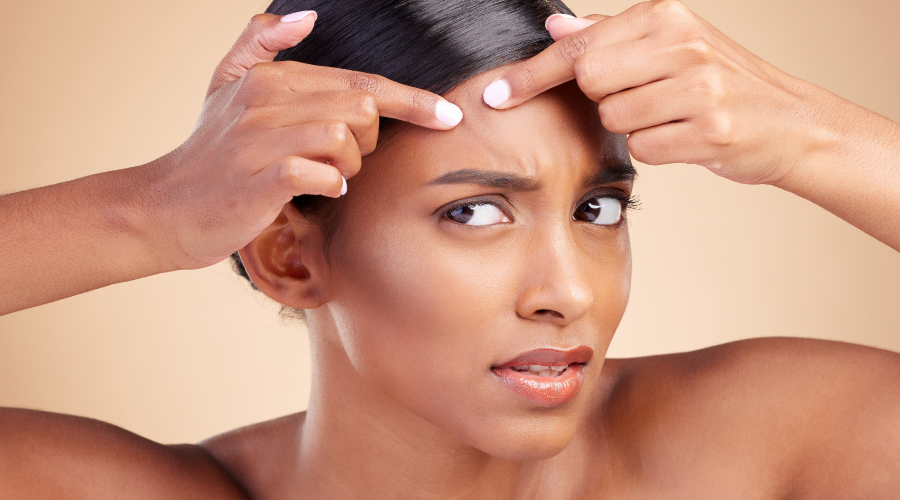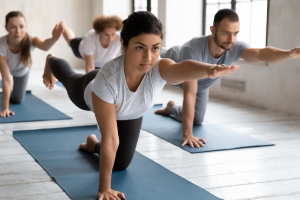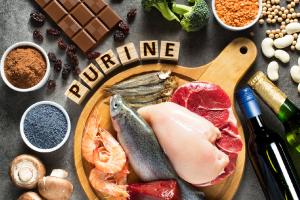

Pimples, which most commonly appear on the face, can also affect your head, especially the scalp. Pimples on head might not affect your appearance as much as facial acne, but it can still be quite irritating. In this article, we’ll examine the causes of pimples on the head and their treatment. Knowing the causes of scalp acne and getting acquainted with various remedies can assist people in addressing this problem.
Pimples on Head: An Overview
Pimples on head are tiny, inflamed bumps on your scalp. This condition ranges from mild to severe and results in tenderness, itching, and pain. These pimples mainly result from the same factors that cause acne everywhere else on the body, including excessive sebum production, blocked hair follicles and bacterial growth.
Pimples on Head: Common Causes
Many factors can lead to the development of pimples on head:
- Hormonal Changes
Hormonal changes during adolescence, periods, and pregnancy stimulate excessive oil production on the skin surface, causing pimples on head.
- Excess Sebum Production
High levels of oil production tend to lead to clogging of hair follicles, often resulting in breakouts that occur on the scalp. It is viewed as a major head pimples reason.
- Poor Hygiene
The presence of scalp acne is often a result of neglecting hair and scalp hygiene, which results in a build-up of oil, dirt, and dead skin cells.
- Hair Care Products
Acne may develop because of some hair care products, which get into the pores and cause skin irritation on the scalp, resulting in scalp acne.
- Sweating
Pimples on head can also be caused by excessive sweating, especially when combined with friction due to hats/helmets.
Treating Pimples on Head
Here are some of the effective ways that can be used to treat pimples on head:
- Proper Hygiene
Scalp acne prevention and treatment calls for good personal hygiene in regard to the hair and scalp. Use a gentle shampoo to wash your hair frequently and pay close attention to scalp massage for the removal of extra oil, dirt, and product buildup.
- Avoid Harsh Hair Products
Go for hair care products that are mild and free from sulphates, silicone, and parabens. They do not congest pores and worsen scalp acne like harsh products. It is one of the best remedies for pimples on the head.
- Natural Remedies
There are many home remedies for pimples on head that may lead to faster recovery. Tea tree oil together with any carrier oil, diluted apple cider vinegar, aloe vera gel, and witch hazel have antimicrobial and anti-inflammatory properties that aid in the inhibition of the acne-causing bacteria and soothe the scalp. Ensure that you do a patch test with every single one of them prior to applying them fully.
- Avoid Frequent Scratching
Do not scratch or pick pimples on head because it will worsen inflammation and cause infection. Gently wash and dry your hair instead of pulling hard on it.
- Medications
In more severe cases, you may need medication or drugs that can only be obtained through prescription. Pimples on head respond well to topical treatments containing benzoyl peroxide, salicylic acid, or sulphur. A dermatologist may also prescribe oral antibiotics or hormone-regulating drugs.
Lifestyle Practices to Get Rid of Pimples on Head
Although the relationship between diet and scalp acne has not been completely studied yet, it is clear that some lifestyle and food habits may lead to the formation of pimples on head. Adopt the following habits to resolve this skin condition:
- Balanced Diet
Diets that are high in fruits, vegetables, whole grains, and lean protein help prevent damage to the skin. Eating foods containing anti-inflammatory properties, like omega-3 fatty acids present in fatty fish, can help minimise inflammation caused by scalp acne.
- Hydration
To keep the scalp and skin healthy, staying hydrated is important. Drinking sufficient water throughout the day helps in flushing out toxins, supporting skin health, and maintaining a healthy scalp.
- Limiting Trigger Foods
Although there are only a few scientific studies that show any direct links between diet and scalp acne, some people have discovered that certain foods only aggravate their symptoms. You can try and identify trigger foods that might contribute to skin irritation on your scalp.
- Stress Management
Long-term stress may result in hormonal disturbances that can lead to the aggravation of scalp acne. Exercise, meditation, yoga, and spending time outdoors are stress-busting activities that can keep one’s mind and body healthier.
- Avoid Touching Your Scalp
Do not touch your scalp needlessly all day long. It is possible for a person to transfer dirt, oil, and bacteria from his or her fingertips to the affected area, worsening the problem.
- Avoid Excessive Heat and Humidity
Intense heat and high humidity increase the production of sebum, which blocks hair follicles. In hot and humid environments, you should protect your scalp from excessive sweating by using breathable caps/head coverings.
When to Seek Medical Advice?
While most cases of scalp acne can be managed with proper hygiene and self-care, it is essential to consult a dermatologist if:
- The problem doesn’t improve itself even after using home remedies or taking medications.
- Pimples on head grow bigger or cause increased pain, redness, or swelling
- When scalp acne becomes very painful, itchy, or causes hair loss
- You notice signs of infections like sores filled with pus, fever, or glandular swelling
Severe or persistent scalp acne requires attention from a dermatologist who determines the underlying cause and recommends appropriate treatment.
Conclusion
Acne on the head can be quite irritating and painful. By being aware of your condition’s cause and incorporating proper treatments, one can effectively address this common skin problem. Pimples on head can be treated by washing hair and scalp with gentle shampoos and using herbal home remedies. Severe cases may require medical attention. It takes consistency and patience to achieve a pimple-free scalp.




